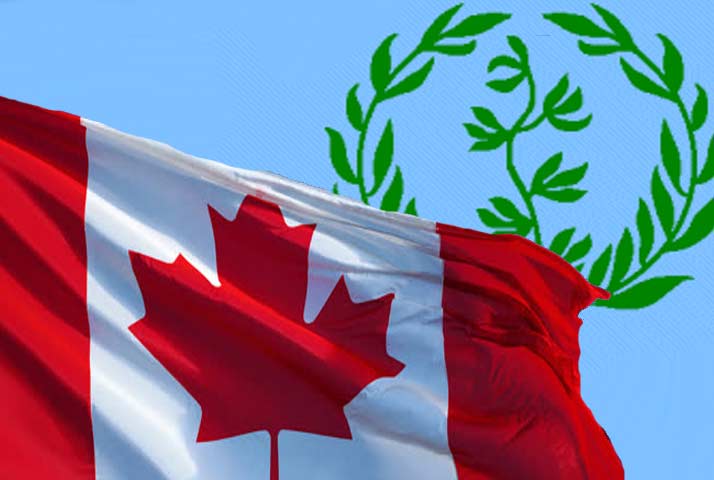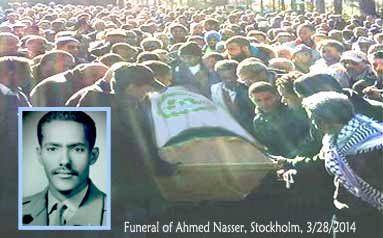Eritrea’s 150th Anniversary!

My adopted nation, Canada, recently celebrated its 150th anniversary on July 01, 2017. The celebration was huge, passionate and colorful. Even though Canada wasn’t the place of my birth, I passionately celebrated this anniversary. Canada has offered me its citizenship, education, health care, opportunities and rights that were denied to me elsewhere. Most importantly, Canada, gave me freedom, dignity and democratic rights. John Diefenbaker, Canada’s 13th Prime Minister, eloquently summed up the most important gift Canada offered me and others when he said: “I am a Canadian, free to speak without fear, free to worship in my own way, free to stand for what I think right, free to oppose what I believe wrong, or free to choose those who shall govern my country. This heritage of freedom I pledge to uphold for myself and all mankind”.
Looking through the windows of my office at the celebrations taking place outside, I couldn’t help but to think of what the 150th anniversary of my native country, Eritrea, would look like? As the legendary Arabic poet, Abu Tamam, notes, a person might become accustomed to many homes, but his heart will always yearn to his native home. My emotions were torn between celebrating the joyfull moment of my adopted nation and the concerns of what lies in the future for my native country.
Certainly, there is a huge gap between my native country and my adopted country, not only in terms of standard of living, natural resource, land scape and population; but also in governance structure, rule of law, democratic institutions, rights and privileges. Canada isn’t perfect, it still has a lingering dark legacy toward the indigenous community, but relatively speaking, Canada is a shining example of what a nation should be.
Understandably, emerging nations go through the pains of transition and growth and it would be unfair to draw a parallel between my relatively new native country and my long established adopted country. Similar to Eritrea, the early years of establishment were not easy for Canada. The rift between the Anglophones and Francophones, the tensions between the Catholics and Protestants, the mistrust between natives and white settlers, the squabbles between provinces, the relationship with the British Empire and the USA were some of the growing pains of the emerging Canada. Over the years of struggles and realignment, Canada learned from its past and introduced new and better way of governance. It formally adopted a Charter of Rights, accepted multiculturalism as an official policy, established affirmative action measures, took steps to address the grievances of its indigenous people and opened the doors for new immigrants to positions historically reserved for white Christian males only. Today, Canada’s Minister of Immigration is a dark skinned Muslim who was born in Somalia; the Defense Minister is a turban wearing Sikh and the Veterans affairs Minister is a wheel chaired handy capped person.
Ironically, today my native country is experiencing a net out flow of people while my adopted country is experiencing a net inflow. My native country is increasing border patrols to prevent people from leaving, while my adopted country is increasing border patrols to contain the influx of refugees knocking on its borders. People are leaving my native country desperately trying to settle in my adopted country, risking their lives and their well being.
Going back to the question I raised earlier as to what the shape of my native country would be in its 150th anniversary; I would, certainly, not expect Eritrea with its limited space and population to be anywhere close to where Canada is today in terms of resource and capacity. But, I hope Eritrea will be on the same footing with Canada in its civic and political norms. I envision my native country, Eritrea, to be:
- A country where freedom of speech and expression is a guaranteed fundamental right for every citizen.
- A country where no one will be afraid to express a dissenting political opinion.
- A country where everyone is presumed to be innocent until proven guilty.
- A country where no one will go to prison without due judicial process.
- A country where those duly incarcerated will have a fair trial, a humane treatment and regular family visits.
- A country where there will be no torture, no kidnapping by secret police and no secret prisons.
- A country where tribal and religious affiliations will have no bearing on citizenry rights.
- A country where people will have equal opportunities based on merit and competence.
- A country where no one will be above the law and no discrimination based on race, religion or language is tolerated.
- A country where there will be full separation between the executive, legislative and judicial branches of the government.
- A country where the army and the generals will be at the borders protecting the country and out of the civilian life of the nation.
- A country where there will be transparent, civilized and peaceful transition of power.
- A country where its finances, its annual budget, revenues and expenses are fully transparent.
- A country where religion and shared values become the social anchor of a humane, civilized, faithful and caring society.
- A country with open borders and free trade agreements that allows Eritreans to tab into a greater pool of resources.
- A country that will be a shining example for others to emulate.
Am I suggesting that Eritrea needs 150 years to be there? Certainly not; these are basic values that should be in place today before tomorrow, but by the 150th anniversary these values should be deeply and firmly ingrained in the blood of the nation. My native country has an advantage of being a late comer into the world stage, similar to Sweden who joined the industrial revolution at a later stage. Sweden took lessons from the pitfalls of other nations and charted a better social and economic path. Eritrea has multitude of lessons to learn from the many stories of success and failures.
The seeds of tomorrow’s success must be planted today. Individuals, parties and groups come and go, but the values seeded today remain in place. The Eritrea of tomorrow can only be built by concerted efforts at every level; not only on the political level; but also at the communal, family, school, worship place and general day to day life. Canadians are known to be clean, orderly and democratic. This became a norm by a lengthy process of learning from kindergarten all the way to adulthood. Democratic norms and civilized discourses are not established by decree, but they are values inculcated in the physic of the nation over a period of time. My native country isn’t foreign to these values; these values are imbedded in its traditional village norms and values. However, the decades long poor governance has taken a tall on these values. An earnest effort is over due to reclaim, reform, modernize and enact these values.
There is no doubt that my native country had a rough start and has taken in many ways a wrong direction. It is my hope, as the days go, my native country would reconsider the direction it has taken. I hope and wish that the gap between my native and adopted country will become smaller and the days where I scratch my head and say, “I wish my native country was like this” will be history!!


Awate Forum